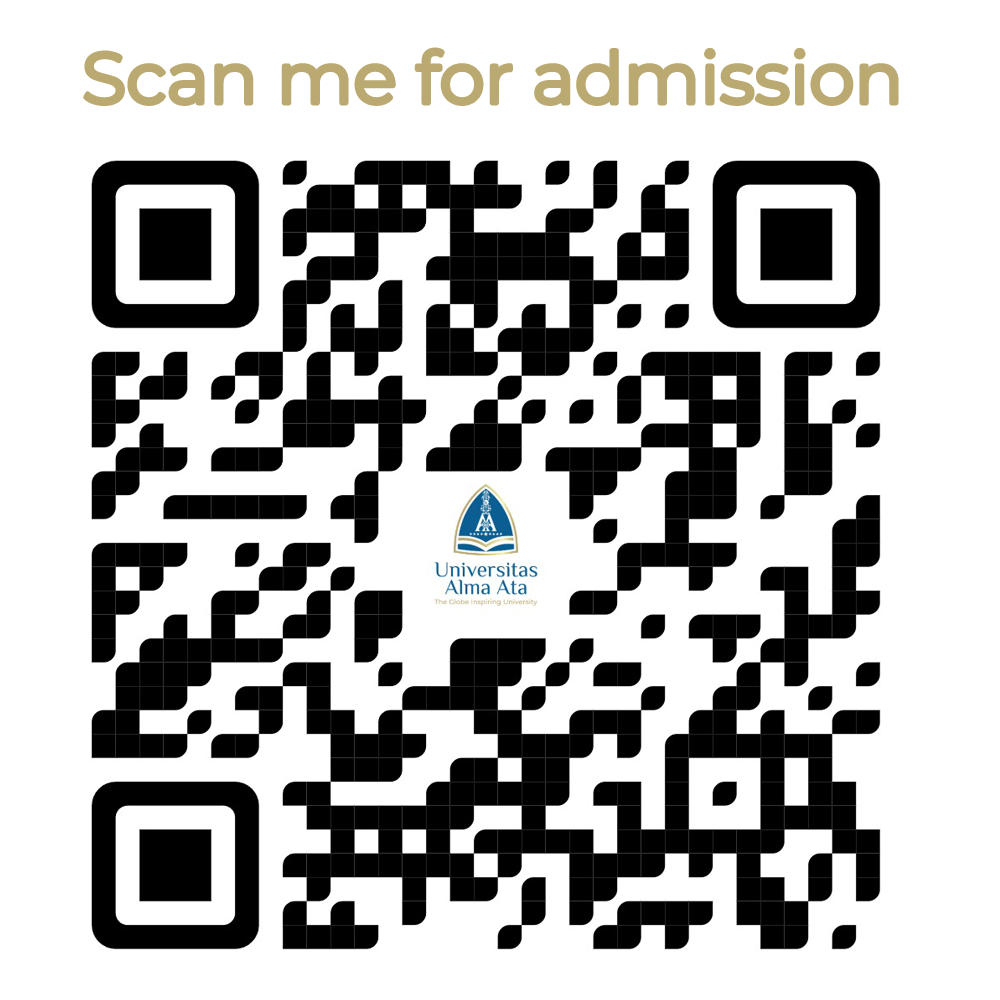Alma Ata University (UAA) Yogyakarta was officially established and organized by the Alma Ata Foundation on December 21 2015 in accordance with the Decree of the Minister of Research, Technology and Higher Education Number 155/KPT/I/2015. UAA is a change in form from the Alma Ata College of Health Sciences (UNIVERSITY) which was founded on June 29 2006 in accordance with the Decree of the Minister of National Education of the Republic of Indonesia No: 108/D/0/2006, and the Alma Ata College of Religious Sciences (STIA). Alma Ata University currently has five (5) faculties consisting of; (1) Faculty of Computers (FKOM), (2) Faculty of Economics and Business (FEB), (3) Faculty of Tarbiyah and Teacher Training (FITK), (4) Faculty of Islamic Religion (FAI), and (5) Faculty of Sciences Health (FIKES). In 2021, there will be a change in the name of the Faculty and the Grouping of Study Programs within Alma Ata University with No. Chancellor’s Decree: 195/A/SK/UAA/XI/2021 which has an impact on changing the name of the faculty, namely the Faculty of Computers and Engineering. The aim of this change is to develop new study programs in the future with a background in engineering. Global competition and the current digital era require universities to always develop in improving the quality of education.
The Faculty of Tarbiyah and Teacher Training (FITK) UAA Yogyakarta currently manages five study programs, namely the Bachelor of Mathematics Education Study Program, Bachelor of Elementary Teacher Education, Bachelor of MI Teacher Education, Bachelor of Islamic Religious Education, and Master of Islamic Religious Education. As a private higher education institution under LLDIKTI Region V, it is obliged to implement the Tri Dharma of Higher Education which includes education, research and community service. Each of these areas will be developed in a directed manner in accordance with the vision, mission, goals and objectives of Alma Ata University. UAA Faculty of Tarbiyah and Teacher Training (FITK) to the UAA Basic Value System which is based on the values of the Islamic teachings of Rohmatal Lil Alamien to build excellence in the provision of higher education in order to realize the University’s vision and mission. This value system is also used as a work basis for all managers and staff. The value system at Alma Ata University refers to three Core Values or Main Values, namely (1) Alma Ata, (2) We Are Healthy, and (3) LIFE. Alma Ata comes from Arabic, namely the words “Ata” which means present and “Alima” which means based on knowledge. So it is intended that Alma Ata is present (ATA) in the midst of society to build a professional society, a society that upholds scientific values, and prioritizes scientific principles as the basis for all its deeds (ALIMA). Alma Ata is also a world health declaration which was declared in 1978. From this declaration emerged the idea of realizing health for all. The expected outcome from the birth of this declaration is that we will all be healthy people (we are healthy). Meanwhile, we are healthy in the context of being one of the values in the ALMA ATA value system.
In accordance with the noble values contained in his name, Alma Ata, whose birth was attended by Muslim intellectuals and Islamic boarding school clerics, is present (ATA) in Indonesia to continue the message of Rasulullah SAW by producing professional human resources, upholding scientific values and prioritizing rules. -scientific principles as the basis for every good deed (ALIMA), having noble morals, and by adhering firmly to the values of Islamic teachings to serve the interests of the people. Alma Ata was born as a response from Muslim scholars and ulama within the Ali Masduqi Foundation Islamic Boarding School and the Ali Maksum Foundation Islamic Boarding School to current developments, changing tendencies in civilization, lifestyle patterns and human behavior today, and is part of a reflection of religious moral responsibility for proves that “Islam is always suitable anytime and anywhere” that “Islam sholichun fi kulli masa wa makan”.


